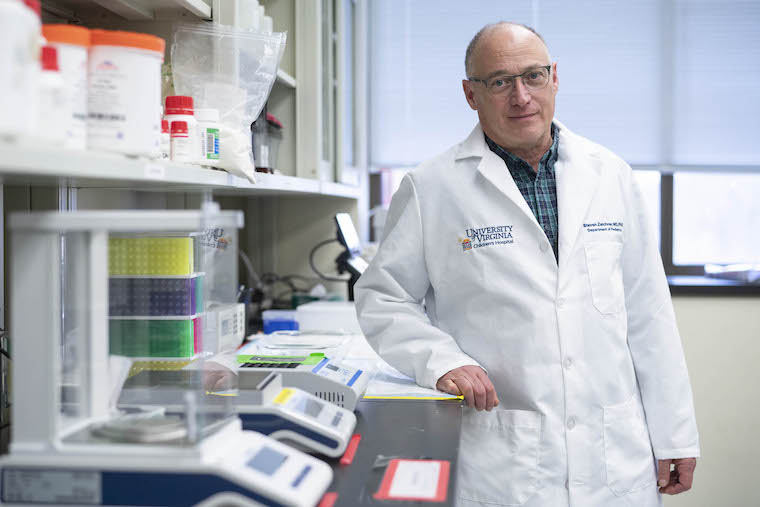"Abzymes" -- antibodies that act like enzymes -- may explain the persistent symptoms of long COVID, new research from our Steven L. Zeichner, MD, PhD, suggests.
Dr. Zeichner and his team found that the COVID-19 virus can cause some patients to make antibodies that act like enzymes critical to controlling bodily functions such as blood pressure. Related enzymes also regulate other important body functions, such as blood clotting and inflammation.
“Abzymes are not exact copies of enzymes and so they work differently, sometimes in ways that the original enzyme does not," Dr. Zeichner explained. "If COVID-19 patients are making abzymes, it is possible that these rogue abzymes could harm many different aspects of physiology. If this turns out to be true, then developing treatments to deplete or block the rogue abzymes could be the most effective way to treat the complications of COVID-19.”
To determine if antibodies could be having unexpected effects in COVID patients, Zeichner and his team examined plasma samples collected from 67 volunteers with moderate or severe COVID on or around day 7 of their hospitalization. The researchers compared what they found with plasma collected in 2018, prior to the beginning of the pandemic. The results showed that a small subset of the COVID patients had antibodies that acted like enzymes.
Abzymes, Dr. Zeichner says, could explain the source of some of long COVID symptoms and why long COVID symptoms persist even after the body has cleared the initial infection. It also may explain rare side effects of COVID-19 vaccination. By targeting these abzymes, doctors may be able to develop better treatments for both the acute symptoms of COVID and long COVID, he says.
“We now need to study pure versions of antibodies with enzymatic activity to see how abzymes may work in more detail, and we need to study patients who have had COVID-19 who did and did not develop long COVID,” Dr. Zeichner said. “There is much more work to do, but I think we have made a good start in developing a new understanding of this challenging disease that has caused so much distress and death around the world. The first step to developing effective new therapies for a disease is developing a good understanding of the disease’s underlying causes, and we have taken that first step.”
